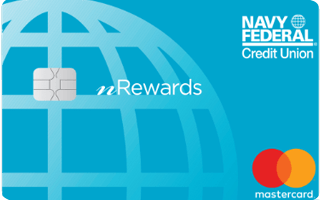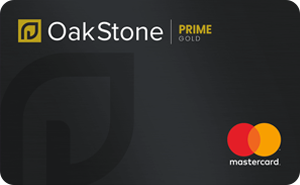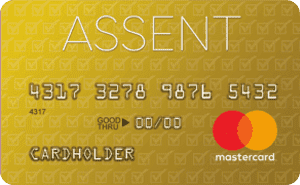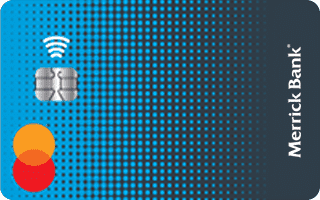When you have bad credit or are trying to rebuild your credit, getting approved for a credit card can be challenging. About 1 out of every 6 people in the U.S. have a very poor FICO score (300 to 579), so you’re not alone. There are many reasons people have poor credit, such as job loss, emergency bills, divorce and economic hardship.
Read more
MoneyGeek’s Take: Top 10 Credit Cards for Bad Credit
We’ve selected the top credit cards for bad credit based on multiple factors. For instance, the Citi Secured Mastercard charges no annual fee, whereas the Credit One Bank Unsecured Platinum Visa Card for Rebuilding Credit lets you earn cash back on eligible purchases. We’ve also taken other factors such as APRs and added perks into account.
Some of the links in the above table will take you to one of our partner’s sites where you can compare and apply for a selected credit card.
Best Credit Card Offers for Bad Credit
We’ve separated the best credit card offers for bad credit into two types — those that require a deposit and those that do not. Our MoneyGeek experts prepare detailed reviews of every card and include their opinion on the pros and cons of each card’s offer and key details of fees and benefits.
Best Secured Credit Cards to Build Credit
The best secured credit cards for bad credit require a refundable security deposit to get approved for the card. In most cases, you can receive a higher credit limit by depositing more money, and your deposit will be refunded when it is converted to an unsecured card or if you close your account.
-
Chime Credit Builder Secured Visa® Credit Card
A good secured credit card with no annual fees and interest
-
None-Poor
Credit Needed
-
Unspecified
APR
-
$0
Annual Fee
-
$200
Min. Security Deposit
We recommend the Chime Credit Builder Secured Visa® Credit Card for people who wish to build their credit histories without paying any annual fees. However, you need to open a Chime checking account and ensure that it has at least one qualifying direct deposit of at least $200 in order to apply for this card.
Any amount you transfer from your Chime checking account into your Credit Builder account becomes your card’s credit limit. While you pay no annual fees or interest, you need to pay off your balances in full each month. Using this card outside of the U.S. is perfect because it charges no foreign transaction fees.
This card reports your payments to Experian, Equifax and TransUnion. As a result, making payments on time might help build your credit score. Besides, since this card does not come with a predetermined credit limit, it does not factor in the calculation of your credit utilization ratio.
Pros
- No credit needed
- No annual fees
- No international fees
- No maintenance fees
- No interest
Cons
- Checking account needed
- Credit limit is based on money you move to the account
- No rewards and introductory offers
- $0 annual fee
- No APR
- 0% foreign transaction fee
- Mobile app
Disclaimer: Credit card offers are constantly changing. We work hard to stay updated with the latest information, but the offers listed on our site may no longer be available.

Terms, rates and fees apply
-
-
OakStone Platinum Secured Mastercard®
An excellent secured credit card with no credit score requirement
-
None-Poor
Credit Needed
-
$49
Annual Fee
-
$200
Min. Security Deposit
-
3
# of Reporting Bureaus
-
9.99%
APR
We recommend the OakStone Platinum Secured Mastercard® for people who wish to build their creditworthiness because it reports cardholders’ payment histories to the nation’s top three credit bureaus. This card comes with a competitive APR on purchases and has no penalty rate. However, you need to pay an annual fee of $49. If you use this card outside of the U.S., you’ll need to pay a 3% foreign transaction fee.
You may choose to get a credit line of $200 to $5,000, provided you’re able to pay the corresponding amount as a security deposit.
You may apply for this card even if you have a discharged bankruptcy listed in your credit bureau file. In addition, it comes with no minimum credit score requirement.
Pros
- Security deposit and corresponding credit line may vary from $200 to $5,000
- Competitive APR on purchases
- Reports to top three credit bureaus
- No minimum credit score requirement
- Lets you apply even if you have a discharged bankruptcy
Cons
- Annual fees
- Foreign transaction fees
- Late and returned payment fees
- Comes with a credit limit of $200 to $5,000, which you need to provide as a security deposit
- Apply with no credit history or if you have a discharged bankruptcy ruling in your credit report
- Low variable APR on purchases
- Annual fee of $49
- 3% foreign transaction fees
- Reports payment history to Experian, TransUnion and Equifax
Disclaimer: Credit card offers are constantly changing. We work hard to stay updated with the latest information, but the offers listed on our site may no longer be available.

Terms, rates and fees apply
Compare this credit card with other top-rated cards from our partners.
-
-
Navy Federal Credit Union® nRewards® Secured Credit Card
A good secured card for building credit and earning rewards
-
None-Poor
Credit Needed
-
$0
Annual Fee
-
18.00%
APR
-
$200
Min. Security Deposit
-
1 Point per $1
Rewards Rate
We like the Navy Federal Credit Union® nRewards® Secured Credit Card because it comes with no annual fees and lets you earn rewards. You earn 1 reward point per dollar spent on purchases. You may redeem your points for cash or statement credit, or to purchase merchandise or gift cards. You reward points remain valid for four years.
Applying for this card requires that you deposit a minimum of $200 in your Navy Federal savings account. If Navy Federal approves your application, it holds the deposited amount in your account to serve as your card’s credit limit. You might qualify for a credit limit increase without needing to pay an additional deposit after the first three months. Navy Federal considers your account for an upgrade to the cashRewards unsecured card after six months from account opening.
Using this card outside of the U.S. does not come with foreign transaction fees. This card also does away with cash advance and balance transfer fees. Additional benefits include free access to your credit score, the ability to freeze/unfreeze your card and rental car coverage.
Pros
- Charges no annual fee
- Low minimum security deposit
- Earn 1 point per dollar on purchases
- Redeem reward points in different ways
- No foreign transaction fees
- Review of account for upgrade to unsecured card after six months
Cons
- Cash advance fee at non-Navy Federal branch or ATM
- Late/returned payment fee
- No annual fees
- Earn 1 reward point per dollar
- Credit limit increase possible after three months
- Possibility of graduating to a secured card after six months
- Rental car coverage
Disclaimer: Credit card offers are constantly changing. We work hard to stay updated with the latest information, but the offers listed on our site may no longer be available.

Terms, rates and fees apply
Compare this credit card with other top-rated credit cards at CardRatings.com.
-
-
OakStone Gold Secured Mastercard®
A secured credit card meant for people with poor or no credit histories
-
None-Poor
Credit Needed
-
$39
Annual Fee
-
$200
Min. Security Deposit
-
3
# of Reporting Bureaus
-
13.99%
APR
You may benefit by getting the OakStone Gold Secured Mastercard® if you wish to build or rebuild your credit because it accepts applications from people who have poor or no credit histories. Applying for this card does not involve a credit inquiry. Instead, OakStone looks at your income and ability to make payments to arrive at a decision.
You may provide a security deposit of $200 to $5,000 and the same serves as your card’s credit limit. This card reports your payment history to all three credit bureaus, so using it in the right manner helps improve your credit score.
This card comes with a $39 annual fee. Using it outside of the U.S. is not a good idea as it charges a foreign transaction fee. While you might request expedited processing of your application, this service comes with an added fee.
Pros
- Apply with poor or no credit history
- Reports to all three credit bureaus
- Credit limit of $200 to $5,000
- No credit inquiry when you apply
Cons
- Requires a security deposit
- Annual fee of $39
- Foreign transaction fee of 3%
- High late payment fees
- Expedited processing service fee of $19.95
- $39 annual fee
- Apply with poor or no credit history
- Reports to Experian, Equifax and TransUnion
- Credit limit varies from $200 to $5,000
- 3% foreign transaction fee
Disclaimer: Credit card offers are constantly changing. We work hard to stay updated with the latest information, but the offers listed on our site may no longer be available.

Terms, rates and fees apply
-
-
Citi® Secured Mastercard®
Best credit card for building credit with no or limited credit history
-
None-Poor
Credit Needed
-
$0
Annual Fee
-
$200
Min. Security Deposit
-
3
# of Reporting Bureaus
-
22.49%
APR
If you’re looking to build up credit for the first time but are having trouble getting approved for other cards, Citi® Secured Mastercard® could be your ticket to building a worthwhile credit score fast.
It features no annual or other incessant fees, and it allows you to access up to $2,500 of credit. Your credit limit is based on your initial deposit. As a secured credit card, this requires a $200 minimum deposit within 14 days of creating your account.
Once you open your account and make your deposit, you’ll benefit from a plethora of tools to help you build a quality credit score in no time. These include an auto-pay function and other financial planning tools, as well as free access to your FICO score.
Most importantly, this card reports to all three major credit bureaus. So with several months of responsible use, you’ll start to see improvements to your credit score across the board. You can also use the card anywhere Mastercard is accepted, so it’s not difficult to make purchases throughout the month and see that score improve when you pay on time.
Pros
- No annual fee
- Can use the card anywhere
- Multiple management options
- Additional financial tools, auto-pay, etc.
- Monthly reports to all three credit bureaus and free FICO score access
Cons
- No major rewards
- High APR
- Requires $200 security deposit minimum. Must pay the deposit within 14 days of opening account
- $2,500 maximum deposit
- Credit limit is equal to deposit
Disclaimer: Credit card offers are constantly changing. We work hard to stay updated with the latest information, but the offers listed on our site may no longer be available.

Terms, rates and fees apply
-
-
Assent Platinum 0% Intro Rate Mastercard® Secured Credit Card
Best for those looking for a credit-boosting card with a 0% intro APR
-
None-Poor
Credit Needed
-
$49
Annual Fee
-
$200
Min. Security Deposit
-
3
# of Reporting Bureaus
-
12.99%
APR
We recommend the Assent Platinum 0% Intro Rate Mastercard® Secured Credit Card issued by Synovus Bank to individuals who wish to build or rebuild their credit. You may provide any amount between $200 and $2,000 as your refundable security deposit, and the same will serve as your credit limit.
Getting this card might work well for you if you wish to make a purchase that you plan to pay off within a few months. This is because it comes with an intro 0% APR offer on purchases for the first six months.
Making your payments on time and using a small percentage of your credit limit can help improve your credit score as this card reports your payment history to the top three credit bureaus. You need to pay a $49 annual fee for as long as your account remains active. You also have to pay foreign transaction fees if you use your card outside of the U.S.
Pros
- Low credit requirement
- 0% intro APR for 6 months
- Low APR after the intro period
- High credit line
Cons
- Annual fee of $49
- High security deposit
- 3% foreign transaction fee
- Requires a refundable security deposit of at least $200
- Regular credit reports to all three bureaus
- Credit line of up to $2,000
- Cash advance of $10 or 3% of the amount, whichever is greater
- Up to $40 late payment fee
- Credit score requirement: 300+
- 24/7 online access to your account
Disclaimer: Credit card offers are constantly changing. We work hard to stay updated with the latest information, but the offers listed on our site may no longer be available.

Terms, rates and fees apply
-
-
Merrick Bank Secured Credit Card
A good secured credit card for people who wish to build their credit
-
None-Poor
Credit Needed
-
$36*
Annual Fee
-
$200
Min. Security Deposit
-
3
# of Reporting Bureaus
-
17.45%
APR
We feel that the Merrick Bank Secured Credit Card may work well for people who have poor or average credit scores and wish to build their credit. It accepts initial security deposits of $200 to $3,000, making it well within reach of most people. The security deposit you provide doubles up as your credit limit. You may increase your credit limit at anytime by adding more money to your security deposit.
You need to pay a nominal annual fee of $36 for the first year, and you’re billed at $3 per month thereafter. This card reports account activity to the top three credit bureaus each month. It also gives you free access to your FICO Score every month.
Using this card outside of the U.S. might not be in your best interest as it charges a foreign transaction fee.
Pros
- Can qualify with poor credit
- Accepts $200 to $3,000 as security deposit
- Low annual fee
- Competitive APR
- Reports to the major credit bureaus
- Lets you view your FICO Score for free
- Regular account reviews to determine if you’re eligible for a credit line increase
Cons
- Foreign transaction fee
- Cash advance fee
- No possibility of upgrading to an unsecured card
- First year’s annual fee is $36, and you pay $3 per month thereafter
- Pay any amount between $200 and $3,000 as security deposit
- Possibility to get a higher credit limit without paying extra security deposit
- Choose from five card designs while applying
- 2% foreign transaction fee
- Reports to Equifax, TransUnion and Experian each month
- Lets you view your FICO Score for free
- $0 fraud liability
Disclaimer: Credit card offers are constantly changing. We work hard to stay updated with the latest information, but the offers listed on our site may no longer be available.

Terms, rates and fees apply
-
-
Capital One Platinum Secured Credit Card
Best secured card for building credit on a budget
-
Limited-Poor
Credit Needed
-
$0
Annual Fee
-
$49–$200*
Min. Security Deposit
-
3
# of Reporting Bureaus
-
26.99%
APR
There’s a lot to like about the Capital One Platinum Secured Credit Card, starting with the budget-friendly lack of annual, monthly or foreign transaction fees and a 25-day grace period if you forget to pay your bill.
While the Capital One Platinum Secured Credit Card does require a refundable security deposit, Capital One generously allows you to get a $200 line of credit with as little as a $49 deposit if you qualify. If you make more than that minimum deposit, you could instantly get a credit limit of up to $1,000.
Perhaps most importantly of all, the Capital One Platinum Secured Credit Card allows you to access a higher credit limit in just six months if you make your payments on time. Do that, and this card will serve as a great way to boost your credit score by reducing credit utilization.
Pros
- Great if you have limited or bad credit
- No annual fee
- 25-day grace period
- Good for building credit
- Easy to get a higher credit limit
- Online access for easy managing/monitoring
- Millions of acceptable card locations worldwide
Cons
- APR is a bit high
- No extra rewards
- Credit check required
- Requires an initial security deposit of at least $49
- Regular credit reports to all three bureaus
- Initial credit lines start at $200
- Cash advance of $10 or 3% of the amount, whichever is greater
- Up to $40 late payment fee
Disclaimer: Credit card offers are constantly changing. We work hard to stay updated with the latest information, but the offers listed on our site may no longer be available.

Terms, rates and fees apply
-
MONEYGEEK QUICK TIP
Secured credit cards are great options for people with limited credit because they only allow for so much spending. Unsecured credit cards, while they have a credit limit, the card will not limit your spending which could cause issues if the cardholder spends beyond their means. Compare the top secured credit cards at our partner site, CardRatings.com.
Best Unsecured Credit Cards for Bad Credit (No Deposit)
Our choices for the best unsecured credit cards for bad credit allow you to get approved for a new credit card without having to deposit any money. These cards are an excellent choice for people who don’t have the ability or desire to make a security deposit.
-
Indigo Mastercard
A good unsecured credit card to build or rebuild credit
-
None-Poor
Credit Needed
-
$0–$99*
Annual Fee
-
3
# of Reporting Bureaus
-
24.90%
APR
You may consider applying for the Indigo Mastercard if you have less-than-perfect credit. Making payments on time and not using too much of your available credit gives you the ability to build your credit score because this card reports your payment history to all three credit bureaus. Prequalifying for this card does not have an effect on your credit score.
The Indigo Mastercard comes in three variants; Plat-602, Plat-603 and Plat-604. The annual fee you need to pay depends on the version for which you qualify and varies from $0 to $99. This card finds global acceptance, although using it outside of the U.S. comes with a 1% foreign transaction fee. You get basic Mastercard benefits too.
Pros
- Plat-604 comes with no annual fees
- No need to provide security deposit
- Apply with no/limited/poor credit history
- Reports to all three credit bureaus
- Prequalification does not affect credit score
- Low foreign transaction fees
- $0 liability and identity theft protection
Cons
- First year’s annual fee of $75 for Plat-602, $99 thereafter
- $59 annual fee for Plat-603
- High standard APRs
- Steep late/returned payment fees
- High cash advance fees
- Apply with no, limited or poor creditworthiness
- Pay $0 to $99 as annual fees
- Does not require security deposit
- Reports payment history to TransUnion, Equifax and Experian
- 1% foreign transaction fee
- Zero liability protection
- Mastercard ID theft protection
Disclaimer: Credit card offers are constantly changing. We work hard to stay updated with the latest information, but the offers listed on our site may no longer be available.

Terms, rates and fees apply
-
-
Milestone® Unsecured Mastercard®
A good unsecured credit card for people with poor or no credit history
-
None-Poor
Credit Needed
-
$35 – $99
Annual Fee
-
3
# of Reporting Bureaus
-
24.90%
APR
We recommend the Milestone® Unsecured Mastercard® from The Bank of Missouri to people who wish to establish or rebuild their credit without paying a security deposit. Getting prequalified for this card does not affect your credit score in any way. It reports your payment history to all three credit bureaus, so making payments on time may help improve your credit score.
Depending on your specific situation, you may qualify for one of three Milestone cards. These include Gold 300, Gold 301 and Gold 322. The APRs these cards come with remains the same across all three variants, although there is a difference in annual fees. For example, Gold 300 charges $35 as annual fees, whereas you need to pay $59 per year if you get Gold 322.
If you use this card outside of the U.S., you need to pay 1% as foreign transaction fees. Additional benefits come in the form of identity theft protection and $0 liability protection.
Pros
- Requires no security deposit
- You may apply with no, limited or poor credit
- Reports to all three credit bureaus
- Low foreign transaction fees
- Fraud protection
Cons
- Annual fee varies from $35 to $99
- High standard APRs on purchases and cash advances
- High late and returned payment fees
- Apply with poor or no credit history
- Need to pay $35 to $99 as annual fees
- No security deposit required
- Reports to Equifax, Experian and TransUnion
- Foreign transaction fee of 1%
- Mastercard ID theft protection
- Zero liability protection
Disclaimer: Credit card offers are constantly changing. We work hard to stay updated with the latest information, but the offers listed on our site may no longer be available.

Terms, rates and fees apply
-
The Best Credit Cards for Bad Credit at a Glance
The links in the table below and the following component will take you to one of our partner’s sites where you can compare and apply for a selected credit card.
Sorry. We were not able to load data for table…
HOW WE RANK CREDIT CARDS APPROVED FOR LOWER CREDIT SCORES
Our experts analyze 57 data points they collect from issuer websites, the Consumer Finance Protection Bureau and details provided by our partners to make sure we give you the most accurate information possible. They subject all new and existing cards from this segment to our unique ranking methodology that takes multiple parameters into account to arrive at the best of the lot.
- Average APR: 20%
- Annual Fee: 20%
- Credit Needed to Apply: 20%
- Cash Back/Rewards Rate: 5%
- Late Fees: 2%
How to Compare Credit Cards for Bad Credit
There are many good credit cards available for those with bad credit. If you’re looking to build or repair your credit history, it’s important to choose a card that best fits your needs and financial situation. So to cut through the noise, you’ll want to pay close attention to certain features and criteria that will help you decide which card is right for you. Below are 10 things you should look out for when comparing credit cards:
1
Application fees
Is there a fee to apply for the credit card or to open your account?
2
Annual or monthly fees
Does the credit card charge any fees to keep the account open?
3
Interest rates
What is the interest rate on purchases and balance transfers? Is the card issuer offering a promotional rate for new cardholders? If so, what are the terms?
4
Security deposit amount
How much does the credit card require as a security deposit, and is it refundable?
5
Earn rewards on purchases
Does the card earn rewards on your purchases? If so, does it earn cash back, miles or points? Are there any bonus categories or limits on how much you can earn, and do your rewards expire?
6
Initial credit limit
What is the minimum credit limit, and can you get a higher limit by increasing your security deposit?
7
Credit limit increases
Does the bank automatically increase your credit limit after you’ve used the card responsibly? If so, how long until that happens?
8
Conversion to an unsecured card
Will your secured credit card convert to an unsecured card after you’ve built good credit habits?
9
Free credit score
Does the card provide free access to your credit score so that you can monitor your progress towards building your credit history?
10
Additional benefits
Are there any other benefits when using the card, such as no foreign transaction fees, purchase protection or zero liability for unauthorized purchases?
Types of Credit Cards for Subprime Credit
There are a variety of credit cards available for people who are building their credit. While some require a security deposit, many do not.
-
Card Type
Description
-
Secured credit cards
These cards require a deposit to open your account, and
the credit limit is equal to your deposit. Many cards,
like the Merrick Bank Double Your Line Secured Visa,
have a minimum security deposit amount but also allow you
to deposit more money to receive a higher limit. -
Partially secured credit cards
Customers have to provide a security deposit, but the
credit limit is more than the security deposit. The
Capital One Platinum Secured Card requires a security
deposit of $49, $99 or $200 to receive an initial credit
line of $200. Your account may receive a credit limit
increase in as little as six months without requiring a
larger security deposit. -
Unsecured credit cards
Unsecured credit cards do not require a security deposit
for approval. The Petal 1 “No Annual Fee” Visa Credit
Card has no annual fee and does not require a security
deposit. -
Store cards
These cards help build your credit by reporting your
payments to the credit bureau, but the card can only be
used for purchases at that store. For example, the Home
Depot card cannot be used to make purchases at Lowe’s,
Target or a gas station.
What to Look for in a Card to Help Build Credit More Easily
When looking for a credit card to build your credit, it pays to look at the basic features of each card. Ideally, you’ll find a credit card with no annual fee and a low APR on purchases that earns attractive rewards and offers useful benefits, like free access to your credit score.
Good credit cards for bad credit usually have no annual fee, but it is OK to pay a fee if the card earns rewards or includes benefits that make paying the fee worthwhile. You should try to pay your balance in full each month to avoid interest charges, but that may not always be possible. If you have to carry a balance over to the next month, having a card with a low APR means that you’ll pay less interest than you would on other credit cards that charge a higher interest rate.
Beyond these standard features, you also want to dig deeper into the credit card’s details to avoid unfriendly terms and fees.
What to Be on the Lookout For
- Hidden fees. While some credit cards do not charge an annual fee, they may charge an application fee or monthly fees.
- Grace period. The grace period is the number of days after the statement closes that you have to pay the balance without being charged interest. Longer is better for this feature, and the best credit cards provide a grace period of up to 25 days.
- Foreign transaction fees. When you travel internationally or buy something online from another country, banks can charge up to 3% of the transaction amount as a fee. The best credit cards waive this fee completely.
- Penalty APR. Paying late or having a payment returned by your bank for insufficient funds can increase your interest rate. But there are some secured credit cards that do not raise your APR if you pay late.
- Late fees. How much does the credit card charge if you pay late? Late fees can vary, but most charge about $40 for late payments, but there are a few issuers that waive late fees.
- Over-the-limit fees. Because many subprime credit cards have low limits initially, it can be easy for consumers to go over the limit. Pay attention to the fees that the credit card charges and use your credit card sparingly to avoid going over the limit.
4 Tips for Improving Your Credit with Your New Card
Getting a new credit card is the starting point for improving your credit. Now that you’ve been approved, you must use it responsibly to increase your credit score. Build your score by following these tips:
Make all payments on time
Be sure to make your minimum monthly payment before the due date. Setting up an automatic payment of the minimum due from your bank account ensures you will never miss a payment.
Use the credit card regularly
By making a few small purchases each month and then paying them off quickly, you’re showing the bank that you can use the card responsibly. This behavior is usually rewarded with an increased credit limit or upgrading your secured card into one that is unsecured.
Keep your balances low
When the amount you owe is low compared to your credit limit, that can increase your credit score. Consider limiting your purchases to only the amount that you can pay in full each month.
Avoid fees and penalties
Whenever the bank charges a fee or penalty, it is that much harder to keep your balances low and pay off your balance each month. Avoid late payment fees, over-the-limit fees and other fees to keep your money in your pocket.
Other Ways to Build/Rebuild Credit Without Getting A Credit Card
While getting approved for a new credit card is a popular way to build credit, it is not the only way to do so. There are several alternatives available that will help you build your credit history so that you can get a new card in the future.
Alternatives to Building Credit without a Card
- Use a credit builder loan. Credit builder loans are similar to a traditional loan, but the payout is at the end. You pay monthly payments for a period of time. Then, when the term is over, you receive a check for the loan amount. These lenders charge a small fee for the service and report to the credit bureaus to show your positive payment history.
- Rent payment services. While most landlords do not report rent payments to the credit bureaus, some companies do so for a fee. When you sign up for one of these services, your positive rent payment history can help you build your credit.
- Get added as an authorized user. By adding your name as an authorized user on someone else’s credit card, you’ll benefit from their payment history and responsible use of the card. Because you can make purchases against their credit limit and the account owner is responsible for your charges, this can be a risky decision for them.
- Turn on Experian Boost. Experian Boost allows payments to telephone companies, utilities and select streaming services to report to your credit report. There is no fee for this service, but it only affects your Experian credit history.
Top Questions About Credit Cards for Bad Credit & Rebuilding History
After learning about credit card options for people with bad credit and tips for rebuilding your score, you may have additional questions. Some of the most common questions are focused on how to get approval when your credit score is low and what to do if your application is declined.
-
Are there many unsecured credit cards that accept applicants with fair credit?
-
Are there any unsecured credit cards that will accept applicants with lower-than-fair credit?
-
If the issuer of an unsecured credit card accepts someone with fair credit, should consumers expect to see higher interest rates and/or lower credit limits for that card than what would be offered to a consumer with better credit?
-
What red flags should credit card shoppers with poor or fair credit look for in unsecured credit card offers?
-
If someone has fair or poor credit, would that person be better off getting an unsecured credit card (if approved) or a secured credit card? Will one affect a person’s credit score more positively than the other?

Bruce McClary
Vice President of Communications, National Foundation for Credit Counseling

Rutherford Cardinal Johnson
Lecturer of Economics at the University of Minnesota

Larry Connatser
Family Financial Management Specialist at Virginia Corporate Extension

Ant Ozok, PhD
Professor at the Department of Information Systems, University of Maryland, Baltimore County

Seddik Meziani
Professor of Finance at Montclair State University and ETF Author and Speaker

Natasa Christodoulidou, Ph.D.
Professor at California State University, Dominguez Hills

Frank Wonsok Jee, Ph.D.
Assistant Professor in the College of Business at Western Carolina University

Nicholas Robinson
Director of Accountancy at Eastern Illinois University

Dr. Marc Fusaro
Associate Professor at Emporia State University

John Hilston
Professor of Economics and History at Eastern Florida State College

Michael Omansky
Associate Professor, Felician University, School of Business and Information Sciences

Dr. Sahar Milani
Associate Professor of Economics at St. Lawrence University

John Longo
Professor of Finance at Rutgers Business School; Author of Buffett’s Tips: A Guide to Financial Literacy and Life

Dr. Andrew Burnstine
Associate Professor of Marketing at Lynn University

Anthony Rondinelli
Professor of Business

Gregory Germain
Professor at Syracuse University College of Law

Nick Maeder
Assistant Professor of Economics, Knauss School of Business, University of San Diego

Alex Pomelnikov, PhD
Visiting Lecturer, College of Business at Texas Woman’s University

Anil Agarwal
Adjunct Instructor in International Business at The University of Arizona

Dr. Robert Chatt
Assistant Professor of Finance at Westfield State University

S. Abraham Ravid
Sy Syms Professor of Finance, Sy Syms School of Business at Yeshiva University

Pradeep Rau
Professor of Marketing at The GW School of Business

Nicolas Jankuhn
Assistant Professor of Marketing at the University of Southern Indiana

Tammy Johnston
Professor of Economics at the University of Louisiana

Dr. Hrishikesh (Hrish) Desai
Assistant Professor of Accounting at Arkansas State University

John Garner
CEO & Co-Founder of Card Curator

W. Eric Lee
Associate Professor of Accounting at the University of Norther Iowa

David S. (Steve) Heesacker
Business Instructor at Central Carolina Community College

Lawrence J. White
Professor of Economics, Stern School of Business, New York University

Dr. Kent Belasco
Director of Commercial Banking Program at Marquette University

Adel Varghese
Instructional Associate Professor at the Department of Economics, Texas A&M University

Dr. Rebecca J. Davis
Assistant Professor in the Economics and Finance Department at Stephen F. Austin State University

Kashif A. Ahmed
Financial Planner, Professor of Finance at Suffolk University
Dr. Geo Kelly
Assistant Professor of Marketing at Southwestern Oklahoma State University

Latisha Nixon-Jones
Assistant Professor of Law

Demissew Ejara
Associate Professor of Finance at The University of New Haven
Other FAQs
Yes, there are numerous credit cards to choose from, even with a 400 FICO score. Many of the cards featured on this page and our top secured credit card page accept applicants with little to no credit.
Yes, a FICO 500 credit score can get you approved for a new credit card. Based on your score, you may have to apply for a secured credit card, such as the Platinum Secured Mastercard from Capital One.
Yes, with a FICO 600, you fall into the fair credit score category. These cards begin to offer good benefits and lower fees, such as the Capital One QuicksilverOne Cash Rewards Credit Card, which offers an unlimited 1.5% cash back with a $39 annual fee.
Not everyone who applies for a credit card will be approved. When this happens, you can build your credit score in alternative ways, such as being added as an authorized user on someone else’s card or taking out a credit builder loan.
Yes, retail credit cards can improve your credit score as long as they report to the three major credit bureaus. Retail cards can only be used at that brand’s locations, but they show your ability to make payments on time and stay within your credit limit, which are important factors in your credit score.
Yes, many banks offer credit cards designed for people with bad credit. Often, a security deposit will be required to cover your charges in case you do not pay your bill. Some cards will automatically increase your credit line or convert to an unsecured card if you’ve handled your card responsibly.
Bankruptcy drops your score immediately into the “very poor” (FICO 300 to 579) category because you are defaulting on your accounts. The bankruptcy will stay on your credit report for up to 10 years. Over time, with responsible use of credit, your score will improve.
Yes. While bankruptcy does have a profoundly negative effect on your credit score, it is not a financial death sentence. Some banks will approve you for a credit card shortly after your case has been discharged.
Pre-approved offers can be a good idea because they indicate that you have a good chance of approval for that credit card. Before applying, research other offers because you may find a card that earns more rewards, offers better benefits or has a lower fee.
No. When you receive a pre-approved offer, the bank has used a soft inquiry on your credit, which does not affect your credit score. Only when you submit your application for the offer will a hard inquiry post to your credit report and impact your score.
Most banks do not request verification of the income that is listed on a credit card application. However, if you knowingly report inaccurate data on your application, you are committing fraud. No credit card is worth being convicted of a crime.
No, your bank account is not normally listed on your credit report.
Most banks do not require a bank account to approve you for a credit card. However, having an active bank account at the bank you’re applying to can improve your odds of approval. Additionally, having an open bank account makes it easier to pay your credit card bill each month.
Yes. Lowering your utilization ratio (the amount owed versus your credit limit) is one of the quickest ways to improve your credit score. You can do this by paying down your balances or by increasing your credit limits.
Most lenders report to the three major credit bureaus when you borrow money, such as when you take out a car loan, credit card or line of credit. Experian Boost gives consumers credit for other bills, such as phone bills, utilities and popular streaming services.
Next Steps
Now that you know how credit cards for bad credit work, consider applying for one based on factors such as your existing credit score and whether or not you can pay a security deposit. Paying attention to a card’s fees, APRs and possible rewards is also important.
About the Author
Lee Huffman spent 18 years as a financial planner and corporate finance manager before quitting his corporate job to write full-time in 2018. Lee has been writing about early retirement, credit cards, travel, insurance, and other personal finance topics since 2012. He enjoys showing people how to travel more, spend less, and live better through the power of travel rewards. When Lee is not getting his passport stamped around the world, he’s researching methods to earn more miles and points towards his next vacation.
Lee’s writing can be found on many popular travel and credit card websites such as The Points Guy, Investopedia, and NerdWallet. You can follow Lee’s travels at BaldThoughts.com or listen to his weekly travel podcast at WeTravelThere.com.
*Rates, fees or bonuses may vary or include specific stipulations. The content on this page is accurate as of the posting/last updated date; however, some of the offers mentioned may have expired. We recommend visiting the card issuer’s website for the most up-to-date information available.
Editorial Disclosure:
Opinions, reviews, analyses and recommendations are the author’s alone and have not been reviewed, endorsed or approved by any bank, credit card issuer, hotel, airline, or other entity.
Advertiser Disclosure:
MoneyGeek has partnered with CardRatings.com and CreditCards.com for our coverage of credit card products. MoneyGeek, CardRatings and CreditCards.com may receive a commission from card issuers. To ensure thorough comparisons and reviews, MoneyGeek features products from both paid partners and unaffiliated card issuers that are not paid partners.
